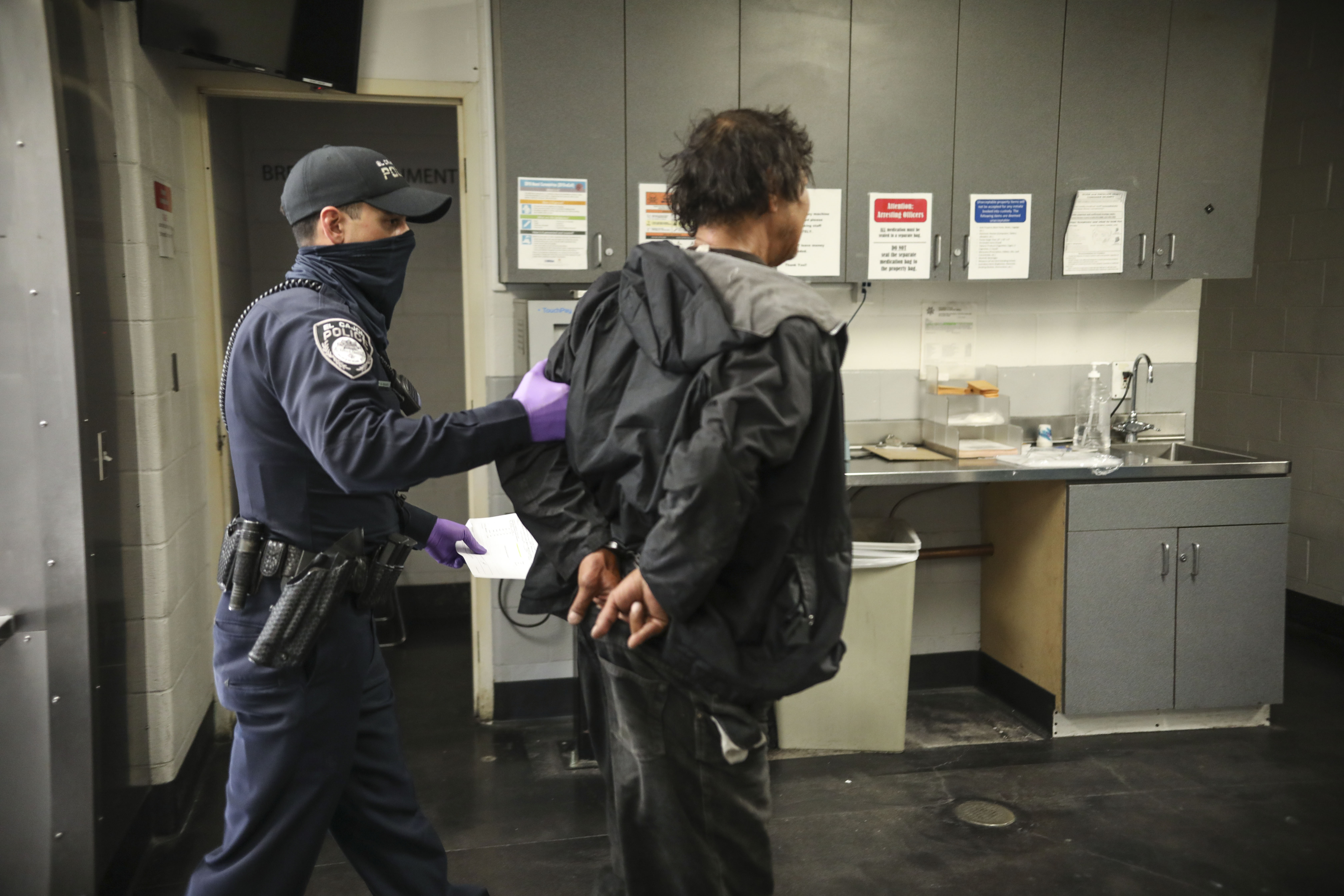At the request of the Legislature, the California state auditor studied the impact of reduced penalties for some crimes and recommended strengthening sentencing guidelines in a report released July 25.
Other potential solutions identified include providing more money for educational, vocational, and behavioral health programs that address the root causes of recidivism.
The auditor’s office looked at the impact of Proposition 47—passed by voters in 2014 to reduce prison populations by changing some drug and theft crimes, among others, from felonies to misdemeanors—in San Bernardino and Riverside counties.
Researchers looked at three metrics—arrests, law enforcement response times, and public calls for service. While no conclusions were drawn from the latter two indicators, arrests declined between 30 percent and 67 percent following the passage of Prop. 47.
And while recidivism rates—counting convictions committed within three years of a prior conviction—declined, the number of serial repeat offenders, those with four or more convictions, increased by 12 percent across all crimes, according to the report. The number of such repeat theft offenders rose 14 percent.
“The law enforcement agencies we reviewed asserted that reduced sentences are driving the increase in individuals committing multiple offenses in general and multiple theft offenses in particular,” auditor Grant Parks said in a letter to the governor and Legislature.
He suggested lawmakers consider enacting tougher legislation that fits within Prop. 47’s intentions or creating a proposal, which voters could consider, that would allow for felony charges for certain nonviolent crimes.
A package of public safety bills making its way through the Legislature would increase sentences for some theft crimes, but critics say their focus on organized retail theft is challenging for prosecutors and too narrow to address the problem.
“It makes it more difficult to prove in court,” Morgan Gire, Placer County district attorney, told The Epoch Times.
While lawmakers weighed drafting a ballot measure in the days before the deadline to do so this year, the attempt was ultimately pulled due to a lack of time to finalize the plan, according to the governor.
However, Proposition 36, which would reverse some of the sentencing reductions enacted by Prop. 47 while focusing on drug rehabilitation programs, will be on the ballot in November.
When asked about the auditor’s report, Gov. Gavin Newsom’s office referred requests for comment to California’s Department of Corrections and Rehabilitation (CDCR).
The CDCR said it follows the California Model—guidelines that focus on peer mentorship and promoting positive relationships, among other things—to reduce recidivism rates, but did not offer direct responses to the auditor’s recommendations.
“CDCR values the input of the state auditor,” the department told The Epoch Times by email. “The department is committed to promoting public safety by providing incarcerated people with tools to become self-sufficient and ease community reentry.”
The corrections department highlighted its efforts to reduce recidivism and called attention to the male and female Community Reentry Programs that provide incarcerated individuals with access to employment, training, health care, and family unification strategies. The programs were given additional funding in the newly signed 2024–25 state budget.
Another issue potentially related to Prop. 47 is an underreporting of theft offenses, according to the report.
Some say underreporting has increased because of how theft suspects are treated when caught. Before the proposition, theft offenders with prior convictions could be arrested and booked into jail, as prosecutors had the option of charging them with felonies.
Under Prop. 47, offenders are typically cited and released because the crimes are now classified as misdemeanors, according to the report.
A San Bernardino police captain and a Riverside police lieutenant told the auditor that businesses are less likely to report crimes “because even when they do so, the same individuals often return the next day to reoffend.”
Chad Bianco, sheriff of Riverside County, sent the auditor a letter expressing concern with the report.
“We are unable to provide you with accurate data points based on the narrow definitions and parameters your office has set for this specific report,” he wrote. “This report ... is highly subjective [and] not accurate.”
The sheriff said the auditor did not respond to his complaints.
“It should be noted that the state was completely uncooperative with us as we attempted to provide context and explanations for obviously inaccurate findings,” Bianco said in a statement emailed to The Epoch Times. “The state would like everyone to believe their flawed report, rather than walk outside and witness the dumpster fire called California caused by a social experiment, falsely labeled as criminal justice reform, that began with Prop. 47.”
He expressed support for Prop. 36 and asked voters to approve the measure in November.
“California public safety is in crisis, everyone knows it, and we need to vote yes on Prop. 36 in November,” Bianco said.














